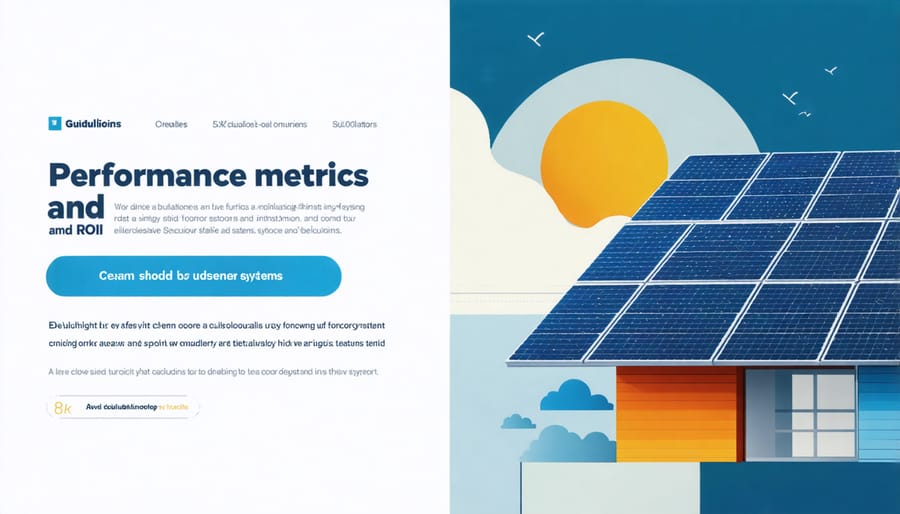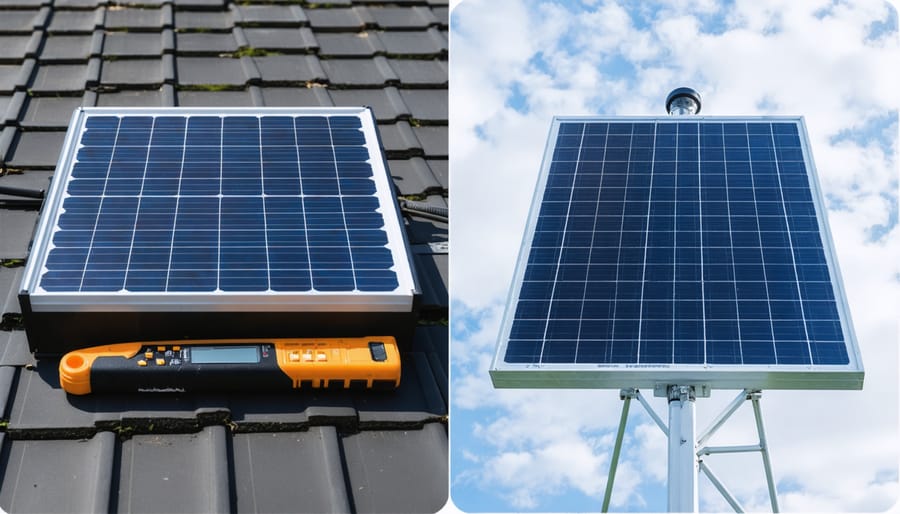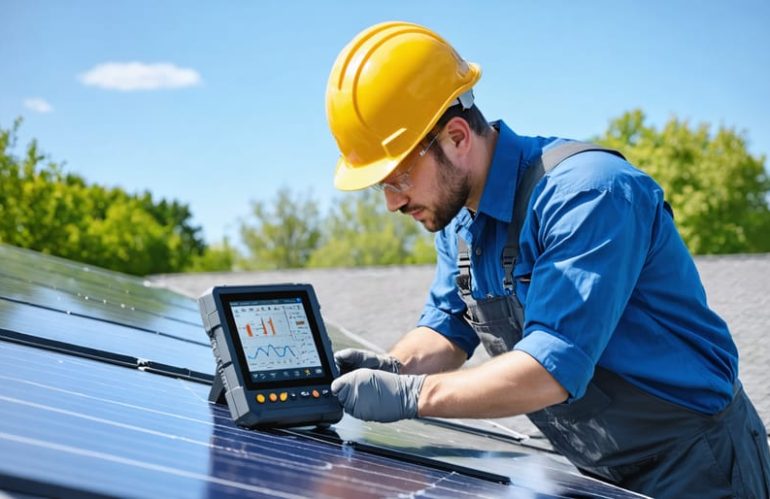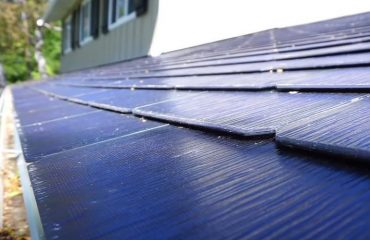A solar energy audit unlocks the full potential of your home’s solar investment, revealing hidden opportunities to maximize both energy production and cost savings. Unlike traditional energy audits, these specialized assessments examine your property’s solar capabilities, current energy consumption patterns, and untapped renewable energy possibilities. By combining advanced monitoring technology with expert analysis, a solar energy audit provides a comprehensive roadmap for optimizing your solar system’s performance or making informed decisions about new installations.
Think of it as a health check-up for your home’s energy ecosystem – one that goes beyond simple power consumption metrics to evaluate solar panel positioning, shading analysis, roof integrity, and electrical system compatibility. Whether you’re considering solar installation or looking to enhance an existing system, this detailed evaluation serves as your foundation for making data-driven decisions about your home’s sustainable energy future.
The growing emphasis on renewable energy makes solar audits increasingly valuable, offering homeowners clear insights into potential energy savings, optimal system sizing, and return on investment calculations. In today’s climate-conscious world, understanding your property’s solar potential isn’t just about environmental responsibility – it’s about making smart, long-term financial decisions for your home’s energy independence.
What is a Residential Solar Energy Audit?
Key Components of a Solar Energy Audit
A comprehensive solar energy audit involves several critical components that professionals evaluate to determine your home’s solar potential. First, experts assess your roof’s condition, orientation, and shading patterns throughout the day. They measure the available surface area and analyze structural integrity to ensure your roof can support solar panels.
The assessment includes a detailed review of your current energy consumption patterns through utility bills and meter readings. This data helps determine your solar system size requirements and potential energy savings.
Auditors also examine your home’s electrical system, including the main service panel, to ensure compatibility with solar installation. They check wiring conditions and identify any necessary upgrades to support your future solar setup.
The evaluation extends to your property’s surroundings, considering factors like nearby trees, buildings, or other obstructions that might affect solar panel efficiency. Weather patterns and local climate data are analyzed to predict system performance throughout the year.
Finally, professionals review local building codes, HOA restrictions, and available incentives to ensure your solar project complies with regulations while maximizing financial benefits. They’ll also assess your current energy efficiency measures and suggest improvements that could enhance your solar investment’s effectiveness.

When to Schedule Your Solar Audit
Timing your solar audit strategically can maximize its effectiveness and ensure you get the most value from your solar investment. The best time to schedule an audit is typically during spring or fall when temperatures are moderate, allowing for more accurate energy assessments. These seasons also provide ideal conditions for inspectors to thoroughly examine your roof and solar panels.
However, certain warning signs indicate you should schedule an audit immediately. If you notice a sudden increase in your energy bills, unexplained drops in solar power generation, or your system is approaching 5-7 years of age, it’s time for an audit. Similarly, after extreme weather events like hailstorms or hurricanes, a thorough inspection is crucial to ensure your system hasn’t sustained damage.
For new solar installations, schedule your first audit within the first year of operation to establish a performance baseline. Afterward, regular audits every 2-3 years help maintain optimal system efficiency. If you’re considering expanding your solar system or adding battery storage, an audit beforehand can help you make informed decisions about your energy needs and system capabilities.
Benefits of Regular Solar Energy Audits

Financial Benefits
A solar energy audit can substantially improve your home’s financial outlook in several ways. Most homeowners see a 20-30% reduction in their monthly energy bills after implementing audit recommendations, which can translate to thousands of dollars in savings annually. The audit helps identify energy waste points and optimizes solar panel placement, maximizing your return on investment.
Beyond immediate energy savings, a professional solar audit can increase your home’s market value by up to 4%. Potential buyers increasingly value energy-efficient homes, making your property more attractive in today’s real estate market. Additionally, many states offer tax incentives and rebates for implementing solar audit recommendations, further enhancing your financial benefits.
The audit also helps you right-size your solar system, preventing costly oversizing while ensuring adequate power generation. This optimization typically results in 15-25% lower installation costs compared to non-audited solar installations. With proper sizing and placement, most homeowners can expect to recover their solar investment within 5-7 years, while enjoying decades of reduced energy costs and increased property value.
System Performance Optimization
Regular system performance checks during a solar energy audit can significantly boost your solar installation’s efficiency. By identifying and addressing potential issues early, you can ensure you’re getting the most from your most efficient solar panels. Auditors use specialized tools to measure panel output, check for shading issues, and evaluate inverter performance.
The audit process helps maximize power output by identifying factors that might be limiting your system’s performance. This includes checking for dust accumulation, examining wiring connections, and verifying proper panel tilt angles. Small adjustments identified during an audit can lead to significant improvements in energy production.
Many homeowners are surprised to learn that simple issues like partial shade from growing trees or loose connections can reduce their system’s efficiency by up to 25%. Regular audits help maintain optimal performance year-round, ensuring you get the most value from your solar investment while keeping your energy bills as low as possible.
Extending System Lifespan
Regular maintenance and monitoring of your solar energy system can significantly extend its lifespan beyond the standard 25-30 years. By scheduling annual inspections, cleaning panels regularly, and addressing minor issues promptly, you can maintain optimal performance and protect your investment. A well-maintained system not only performs better but also maintains its efficiency, ensuring consistent energy production and savings. Monitoring system performance through smart meters or mobile apps helps identify potential problems early, preventing costly repairs and system downtime. Simple practices like removing debris, checking connections, and keeping panels clean can add several years to your system’s productive life while maintaining maximum energy output. This proactive approach ensures you get the most value from your solar investment while contributing to a sustainable future.

DIY Solar System Checks vs. Professional Audits
While maintaining your solar system’s efficiency, you can perform several DIY checks that complement professional inspections. Regular self-monitoring helps catch issues early, but knowing when to call in the experts is equally important.
As a homeowner, you can perform these basic checks monthly:
– Monitor energy production through your system’s display or app
– Visual inspection of panels for dirt, debris, or obvious damage
– Check for shading issues from growing trees or new structures
– Review monthly power bills for unexpected changes
– Inspect mounting hardware for visible loose components
– Monitor inverter display lights and error messages
However, some aspects require professional expertise, particularly during a comprehensive home energy audit. Professional auditors should handle:
– Detailed performance analysis using specialized equipment
– Infrared scanning to detect hot spots or malfunctioning cells
– Electrical system safety inspections
– Complex wiring and connection checks
– Inverter efficiency testing
– Professional panel cleaning and maintenance
It’s recommended to schedule professional inspections annually or bi-annually, depending on your system’s age and local environmental conditions. Professional auditors have access to sophisticated diagnostic tools and can identify potential issues that might go unnoticed during DIY checks.
Remember that while DIY monitoring is valuable for day-to-day oversight, professional audits provide a deeper analysis of your system’s health and efficiency. They can also validate warranty compliance and ensure your system meets current safety standards. Combining regular self-checks with professional audits creates a comprehensive maintenance strategy that maximizes your solar investment’s longevity and performance.
Post-Audit Action Steps
Once your solar energy audit is complete, it’s crucial to take decisive action on the recommendations. Start by reviewing the audit report thoroughly and creating a prioritized list of improvements based on their potential impact and cost-effectiveness. Many homeowners find it helpful to divide recommendations into immediate, short-term, and long-term actions.
Begin with the quick wins – these are typically low-cost, high-impact changes like adjusting solar panel angles or clearing debris that may be blocking sunlight. Schedule professional cleaning if recommended, as clean panels can improve efficiency by up to 5-10%.
For more substantial recommendations, obtain multiple quotes from certified solar contractors. Compare these quotes carefully, considering both cost and quality. Remember to research available tax incentives, rebates, and financing options that can help offset improvement costs.
Create a timeline for implementing larger changes, such as adding more panels or upgrading inverters. This helps spread costs over time while ensuring steady progress toward optimal system performance. Keep detailed records of all modifications and maintenance work performed.
Monitor your system’s performance after implementing changes to verify improvements. Many modern solar monitoring systems can help track these changes effectively. Regular check-ins with your energy consumption and production data will help confirm that the audit recommendations are delivering the expected benefits.
Don’t hesitate to reach out to your auditor for clarification on any recommendations or to discuss unexpected results after implementation. Their expertise can be valuable in fine-tuning your solar energy system’s performance.
A solar energy audit is a crucial first step toward maximizing your home’s solar potential and ensuring a wise investment in renewable energy. By understanding your current energy usage, roof condition, and solar potential, you’ll be better equipped to make informed decisions about your solar installation. Taking action now not only helps reduce your carbon footprint but can also lead to significant long-term savings on your energy bills. Remember to choose a qualified solar auditor, gather your energy bills beforehand, and be prepared with questions about your specific situation. With the insights gained from your audit, you can confidently move forward with solar installation, knowing you’re making choices that benefit both your wallet and the environment. Consider scheduling your solar energy audit today – it’s an investment in a more sustainable and cost-effective future for your home.









